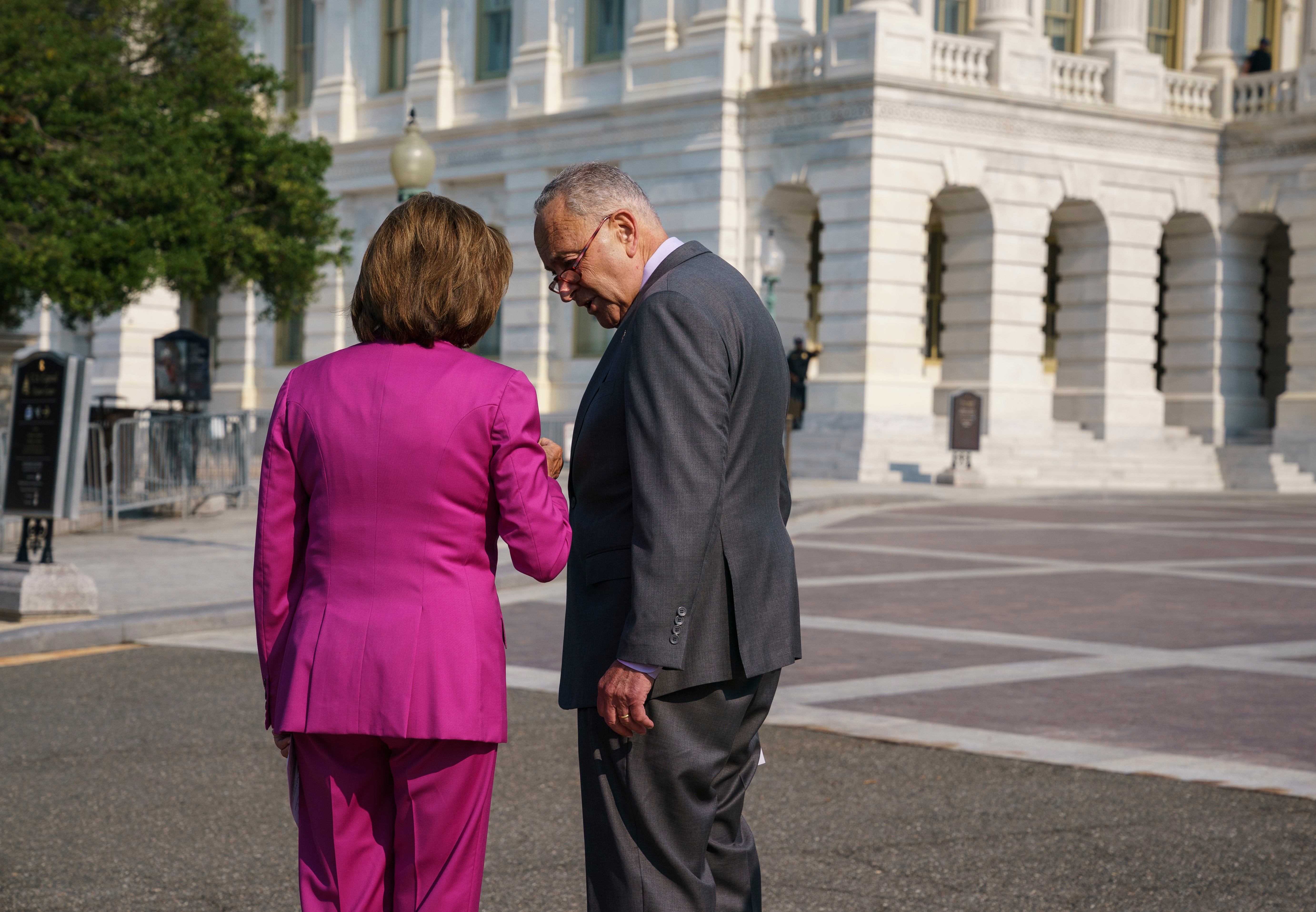Pelosi, Schumer to huddle with Biden on voting legislation
Top congressional Democrats will huddle with President Joe Biden, looking to salvage their push to enact voting rights legislation

Top congressional Democrats will huddle with President Joe Biden at the White House on Friday, looking to salvage their effort to enact federal voting legislation that could counter state laws restricting access to the ballot.
The meeting between Biden, House Speaker Nancy Pelosi and Senate Majority Leader Chuck Schumer comes after Democrats were forced back to the drawing board with their signature voting bill, called the For the People Act, which Senate Republicans blocked with a filibuster last month.
Since then, they've worked on retooling the proposal and will present a framework to Biden, according to a senior congressional aide who discussed the private deliberations on condition of anonymity.
But there's little sign even a rewritten proposal will win the GOP support necessary to pass under current Senate rules. That's left Democrats stalled out and with few options on an issue of high priority to many in the party.
The changes that Democrats are making to the bill could be unveiled as early as next week. The new bill is expected to adopt many of the changes sought by moderate Sen. Joe Manchin, a West Virginia Democrat, who initially objected to the bill, according to the Democratic congressional aide.
Biden and congressional leaders are also expected to discuss a separate bill that will soon be proposed that would restore key portions of the landmark Voting Rights Act of 1965, which were gutted by the Supreme Court in 2013.
“This is of the highest priority for us, the sanctity of the vote,” Pelosi said Friday at a news conference.
Democrats view the bills as their best chance to blunt the impact of a wave of restrictive voting laws adopted in Republican-controlled states this year in the name of election security. The GOP push was fueled by former President Donald Trump's false claims of a stolen 2020 election.
Yet despite the flurry of work on voting legislation, Democrats still face the same challenge as before: a Republican-led filibuster in a 50-50 Senate that would require 10 GOP votes to overcome. Republicans oppose both voting bills, which Senate Minority Leader Mitch McConnell has blasted as "unnecessary" overreach that would infringe on states' authority to conduct elections.
Overcoming such an obstacle would require changing procedural rules, which many moderate Democrats oppose, denying the votes needed to make the change.
Still, party leaders say they intend to try to move forward. And Schumer has said that he could call more voting rights bills to the Senate floor.
Aides gathered Tuesday to hash out difference between the original proposal, a sweeping bill that addressed voting law, as well as ethics and campaign finance rules, and Manchin's scaled back outline. That was followed by a meeting Wednesday in Schumer's office that included Manchin, Minnesota Sen. Amy Klobuchar, Georgia Sen. Raphael Warnock and Oregon Sen. Jeff Merkley, who is the author of the Senate version of the bill. Others present included Georgia Sen. Raphael Warnock and California Sen. Alex Padilla.
Though specifics of the upcoming bill have not been released, the framework that has been largely agreed to will be narrower in focus. It is expected to curb the ability of states to gerrymander congressional districts, target voting restrictions and crimp the untraceable stream of elections spending known as “dark money," according to the aide.
Pelosi has said it will also address the new laws adopted in GOP states that make the administration of elections more partisan. Democrats believe those effort could make it easier for Republicans to discount vote tallies and overturn election results.
Separately, Democrats are expected to unveil the John Lewis Voting Advancement Act as early as next week.
They've held a marathon series of low-key “field hearings” to prepare for votes on the bill, which were intended to build a rationale for the measure that could help it withstand a court challenge.
The bill would allow the Department of Justice to once again police changes to voting rules in places with a history of electoral discrimination against minorities, a practice the Supreme Court put on hold in 2013.
Recognizing the inevitability of a court challenge, Pelosi said Democrats were looking to make it “ironclad constitutionally."